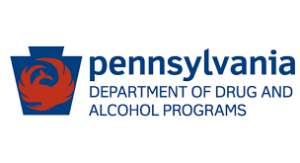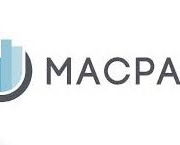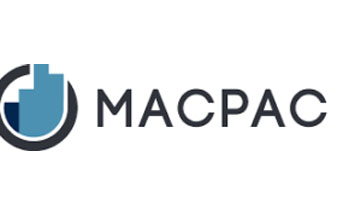PA Health Policy Update for the Week of February 28-March 4
The following is an update of selected state health policy developments in Pennsylvania for the week of February 28-March 4, 2022. (Some of the language used below is taken directly from state documents.)
Governor Wolf
 Governor Wolf announced that Pennsylvania’s state-based health insurance marketplace, known as Pennie, has added a new “qualifying life event” to enable low-income Pennsylvanians to enroll in health insurance throughout the year. Under this new qualifying life event, Pennsylvanians with an annual household income equal to or below 150 percent of the federal poverty level will be permitted to shop and enroll in health insurance through Pennie, with financial assistance available to those who qualify. Until now, this opportunity was only available for those not already receiving coverage through Pennie. Beginning in June, existing Pennie customers whose income is lower than or equal to the 150 percent federal poverty level can update their application and change their plan using this qualifying life event. Learn more from this Wolf administration news release.
Governor Wolf announced that Pennsylvania’s state-based health insurance marketplace, known as Pennie, has added a new “qualifying life event” to enable low-income Pennsylvanians to enroll in health insurance throughout the year. Under this new qualifying life event, Pennsylvanians with an annual household income equal to or below 150 percent of the federal poverty level will be permitted to shop and enroll in health insurance through Pennie, with financial assistance available to those who qualify. Until now, this opportunity was only available for those not already receiving coverage through Pennie. Beginning in June, existing Pennie customers whose income is lower than or equal to the 150 percent federal poverty level can update their application and change their plan using this qualifying life event. Learn more from this Wolf administration news release.
General Assembly
The Department of Health and the Department of Drug and Alcohol Programs appeared before the House Appropriations Committee on Thursday, March 3 to discuss their FY 2023 budget proposals. A recording of their budget hearing can be viewed here.
Among the health-related budget hearings to be held the week of March 7 are:
- Department of Human Services (Senate Appropriations Committee) – Tuesday, March 8 at 10:00 a.m.
- Department of Health (Senate Appropriations Committee) – Wednesday, March 9 at 10:00 a.m.
- Department of Human Services (House Appropriations Committee) – Wednesday, March 9 at 10:00 a.m.
Find a complete schedule of the budget hearings here.
In addition,
- The legislative Rare Disease Caucus held a press conference on Monday, February 28 to recognize February 28 as Rare Disease Day. In addition to announcing that Senator Maria Collett (D-Bucks/Montgomery) will serve as co-chair of the Rare Disease Caucus, Senator Kim Ward (R-Westmoreland) and her colleagues highlighted Senate Bill 196/House Bill 1664 and the Pennsylvania Rare Disease Advisory Council’s “Rare Disease Needs Assessment.”
- The House Human Services Committee held an informational hearing this week focused on traumatic brain injury care. A recording of the hearing can be viewed here.
State Revenue Collection
The Department of Revenue reported this week that Pennsylvania’s General Fund revenue collections for February were $155.7 million, or 6.8 percent, above the official estimate. Fiscal year-to-date collections are $28.6 billion, which is $2 billion, or 7.5 percent, more than projected.
 Centers for Medicare & Medicaid Services
Centers for Medicare & Medicaid Services
CMS has issued guidance to state Medicaid programs to ensure that they are prepared to initiate eligibility renewals for all individuals enrolled in Medicaid and CHIP within 12 months of the eventual end of the public health emergency and to complete renewals within 14 months. To help consumers maintain coverage, the guidance emphasizes current rules requiring states to provide a smooth transition to other options for those who may no longer be eligible for Medicaid or CHIP. This letter is part of a series of guidance and tools that outline how states may address the large volume of pending eligibility and enrollment actions that will need to be addressed when they restore routine operations, including terminations of coverage. It describes how states may distribute eligibility and enrollment work in the post-public health emergency period, mitigate churn for eligible beneficiaries who lose coverage and later reenroll, and smoothly transition individuals between coverage programs. It reiterates options for states to align work on pending eligibility and enrollment actions after the public health ends and provides that states must initiate, rather than complete, all pending actions during the 12-month unwinding period. In addition, it informs states that they are at risk of inappropriately terminating coverage for eligible individuals if they plan to initiate a high volume of renewals in a given month and that CMS intends to collect information on all states’ plans to adopt strategies that will promote continuity of coverage and guard against inappropriate terminations. Learn more from this CMS letter to state Medicaid officials.
Department of Health
- The Department of Health (DOH) has unveiled what it is calling “innovative delivery models” that it hopes will “…provide options that will preserve and increase access to high quality care in areas that may be medically underserved” and “… give rural hospitals flexibility to address historic challenges so they can maintain emergency care in local communities.” The three models DOH introduced are:
- Outpatient emergency departments, which DOH defines as “…an outpatient location of a hospital that offers only emergency services and is not located on the grounds of the main licensed hospital.” Go here for criteria and guidance for implementing outpatient emergency departments.
- Micro-hospitals, which DOH defines as “…an acute care hospital that offers emergency services and maintains facilities for at least 10 inpatient beds with a narrow scope of inpatient acute care services, such as no surgical services.” Go here for DOH guidance on operating micro-hospitals.
- Tele-emergency departments, or tele-EDs, which DOH defines as “…an emergency department in an acute care or critical access hospital that is staffed by Advanced Practice Providers (APP) 24 hours per day/7 days per week with a physician available at all times through telecommunications but not physically present in the emergency department.” DOH provides guidance on operating tele-EDs here.
Learn more about DOH’s innovative delivery models from the following resources:
In addition, DOH has established a web page for its innovative delivery models.
-
- DOH has updated its information about state-sponsored COVID-19 testing sites around the state.
- DOH has expanded financial assistance available in the Medical Marijuana Assistance Program and announced the ninth clinical registrant in the Medical Marijuana Research Program. Learn more from this DOH news release.
 Department of Human Services
Department of Human Services
- The Department of Human Services (DHS) has published the minutes of the February 24 meeting of its Medical Assistance Advisory Committee. Find them here.
- DHS has added a procedure code to the Medical Assistance fee schedule for over-the-counter COVID-19 tests. Learn about the code, its intended use, and its effective date in this Pennsylvania Bulletin notice.
- DHS has posted a notice informing presumptive eligibility providers that the income guidelines used to determine presumptive eligibility have been updated effective January 12, 2022 and reminding them that they can make presumptive eligibility decisions for pregnant women. Find the notice here.
- DHS has posted a reminder that all enrolled physicians, audiologists, pharmacies, medical suppliers, and outpatient hospital clinics that dispense hearing aid supplies to Medicaid beneficiaries must submit a copy of their renewed DOH certification to MA Provider Enrollment by March 16 to provide and bill DHS for hearing aid supplies. Find the notice here.
- DHS has updated its list of participating providers in its Healthy Beginnings Plus program.
- DHS has updated its Medicaid managed care organization directory.
COVID-19: By the Numbers
- Daily COVID-19 case counts have fallen significantly over the past month. On February 1 the state’s seven-day average of new cases was 5685 cases a day; on March 1 it was 1677 cases a day.
- The number of new COVID-19-related deaths follows the same downward trend: Pennsylvania’s seven-day average of deaths was 155 deaths a day on February 1 but was just half that, 78 cases a day, on March 1.
- The Department of Health also reports that approximately 7.5 percent of all staffed adult ICU beds in the state are occupied by COVID-19 patients this week, down from 9.9 percent last week, and that 24 percent of all ventilators in the state are currently in use, down from 25.8 percent last week.
- The decline in the number of Pennsylvania counties experiencing a substantial rate of community transmission of COVID-19 – the highest rate – continues. This past week, Delaware, Lehigh, and Perry counties were all in moderate states of community transmission and 26 other counties – Allegheny, Berks, Bucks, Butler, Carbon, Chester, Cumberland, Dauphin, Erie, Juniata, Lancaster, Lawrence, Lebanon, Luzerne, Lycoming, Mercer, Monroe, Montgomery, Montour, Northampton, Northumberland, Snyder, Sullivan, Venango, Washington, Wyoming – were experiencing “only” substantial rates of community transmission.
- The decline in the number of new COVID-19 cases is reflected in a 70 percent decline from February 1 to March 1 in the number of Pennsylvanians hospitalized with the virus; a 66 percent decline in the number of patients on ventilators during that same period of time; and a 67 percent month-to-month decline in the number of COVID-19 patients in hospital ICUs.
 Stakeholder Events
Stakeholder Events
Department of Health – Advisory Health Board – March 16
The Department of Health’s Advisory Health Board will meet virtually on Wednesday, March 16 at 2:00 p.m. to discuss programmatic and departmental activities. For information about how to participate, see this Pennsylvania Bulletin notice.
Patient Safety Authority – March 17
The Patient Safety Authority will hold a virtual public meeting on Thursday, March 17 at 1:00 p.m. Learn how to join the meeting from this Pennsylvania Bulletin notice.
Department of Health – Newborn Screening and Follow-Up Technical Advisory Board – March 30
The Department of Health’s Newborn Screening and Follow-Up Technical Advisory Board will hold a virtual public meeting on Wednesday, March 30, 2022 at 10:00 a.m. The agenda will include discussions about board member terms; updates from the Bureau of Family Health and the RUSP workgroup; a discussion on pyruvate dehydrogenase; and updates from the Ethics, Lysosomal Storage Disorders/X-ALD, Cystic Fibrosis, Hemoglobinopathy and Critical Congenital Heart Defects subcommittees. Learn how to join the meeting in this Pennsylvania Bulletin notice.
 General Assembly
General Assembly Department of Health
Department of Health COVID-19: By the Numbers
COVID-19: By the Numbers Department of Drug and Alcohol Programs
Department of Drug and Alcohol Programs Pennsylvania Health Care Cost Containment Council (PHC4)
Pennsylvania Health Care Cost Containment Council (PHC4) Legislative Update
Legislative Update Department of Drug and Alcohol Programs
Department of Drug and Alcohol Programs The report includes recommendations for:
The report includes recommendations for: The bill also should include additional targeted funding for safety-net hospitals, help with staffing, an extension of the current moratorium on the Medicare sequestration, and forgiveness for safety-net hospitals for loans they received under the Medicare Accelerated and Advance Payment Program.
The bill also should include additional targeted funding for safety-net hospitals, help with staffing, an extension of the current moratorium on the Medicare sequestration, and forgiveness for safety-net hospitals for loans they received under the Medicare Accelerated and Advance Payment Program. extend the postpartum coverage period for individuals who were eligible and enrolled in Medicaid while pregnant to a full year of coverage, regardless of changes in income. Services provided to individuals during the extended postpartum coverage period will receive an enhanced 100 percent federal matching rate;
extend the postpartum coverage period for individuals who were eligible and enrolled in Medicaid while pregnant to a full year of coverage, regardless of changes in income. Services provided to individuals during the extended postpartum coverage period will receive an enhanced 100 percent federal matching rate; According to the GAO report,
According to the GAO report,
 The October 2020 MACPAC meeting opened with a panel discussion on restarting Medicaid eligibility redeterminations when the public health emergency ends. It included Jennifer Wagner, director of Medicaid eligibility and enrollment at the Center on Budget and Policy Priorities; René Mollow, deputy director for health care benefits and eligibility at the California Department of Health Care Services; and Lee Guice, director of policy and operations at the Department for Medicaid Services, Kentucky Cabinet for Health and Family Services.
The October 2020 MACPAC meeting opened with a panel discussion on restarting Medicaid eligibility redeterminations when the public health emergency ends. It included Jennifer Wagner, director of Medicaid eligibility and enrollment at the Center on Budget and Policy Priorities; René Mollow, deputy director for health care benefits and eligibility at the California Department of Health Care Services; and Lee Guice, director of policy and operations at the Department for Medicaid Services, Kentucky Cabinet for Health and Family Services.